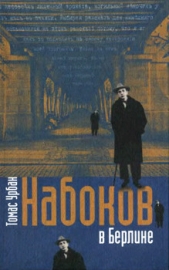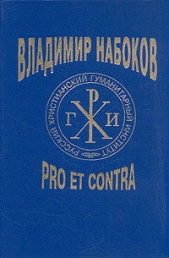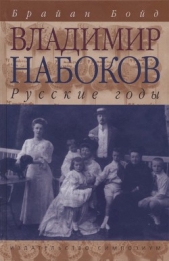Владимир Набоков: pro et contra. Tом 2

Владимир Набоков: pro et contra. Tом 2 читать книгу онлайн
В настоящее издание вошли материалы о жизненном и творческом пути Владимира Набокова в исследованиях как российских, так и зарубежных набоковедов. Многие материалы первого и второго разделов, вошедшие в книгу, являются результатом многотрудных архивных изысканий и публикуются впервые. Третий раздел составляют оригинальные статьи современных русских и зарубежных исследователей творчества писателя, не издававшиеся ранее в России.
Книга адресована как специалистам-литературоведам, так и широкому кругу читателей, и может служить учебным пособием для студентов.
Внимание! Книга может содержать контент только для совершеннолетних. Для несовершеннолетних чтение данного контента СТРОГО ЗАПРЕЩЕНО! Если в книге присутствует наличие пропаганды ЛГБТ и другого, запрещенного контента - просьба написать на почту [email protected] для удаления материала
584. Cancogni A. «My Sister, Do You Still Recall?»: Chateaubriand / Nabokov // Comparative Literature. 1983. Vol. 35. № 2. P. 140–166.
585. Chances E. Chekhov, Nabokov and the Box: Making a Case for Belikov and Luzhin // Russian Language Journal. 1987. Vol. 40. № 140. P. 135–142.
586. Cherry K. Nabokov's Kingdom by the Sea // Sewanee Review. 1975. Vol. 83. № 4. P. 713–720.
587. Christensen I. Nabokov's «Ada»: Metafiction as Aesthetic Bliss // Christensen I. The Meaning of Metafiction: A Critical Study of Selected Novels by Sterne, Nabokov, Barth and Beckett. Bergen, 1981. P. 37–56.
588. Clark B. L. Contradictions and Confirmations in «Ada» // College Literature. 1981. Vol. 8. № 1. P. 53–62.
589. Clayton J. D. The Theory and Practice of Poetic Translation in Pushkin and Nabokov // Canadian Slavonic Papers. 1983. Vol. 25. № 1. P. 90–100.
590. Cohen H. Nabokov's Pnin: A Character in Flight from His Author // English Studies in Africa. 1983. Vol. 26. № 1. P. 57–71.
591. Connolly J. W. Dostoevski and Vladimir Nabokov: The Case of «Despair» // Dostoevski and the Human Condition After a Century / Ed. by A. Urginsky and V. Ozolins. N. Y., 1986. P. 155–162.
592. Connolly J. W. The Function of Literary Allusion in Nabokov's «Despair» // SEEJ. 1982. Vol. 26. № 3. P. 302–313.
593. Connolly J. W. Nabokov's «Terra Incognita» and «Invitation to a Beheading»: The Struggle for Imaginative Freedom // Wiener Slawistischer Almanach. 1983. Bd. 12. P. 55–65.
Рус. пер.: Коннолли Дж. В. «Terra Incognita» и «Приглашение на казнь» Набокова: борьба за свободу воображения // Наст. изд. Т. 1. С. 354–363.
594. Connolly J. W. Vladimir Nabokov and Valerij Brjusov: An Examination of a Literary Heritage // Die Welt der Slaven. 1988. Bd. 33. № 1. S. 69–86.
595. Corn P. W. «Combinational Delight»: The Uses of Story within a Story in «Pale Fire» // Journal of Narrative Technique. 1987. Vol. 17. № 1. P. 83–90.
596. Cosgrove C. Nabokov, Heaney: Coping with Parodies of Pale Conflagrations // Forum for Modern Language Studies. 1996. Vol. 32. № 3. P. 197–207.
597. Couturier M. Ecriture-icon chez Nabokov // University of Windsor Review. 1988. Vol. 21. № 2. P. 18–31.
598. Couturier M. Nabokov's Performative Writing // Les Americanistes: New French Criticism on Modern American Fiction / Ed. by I. D. Johnson and Ch. Johnson. Port Washington, N. Y., 1978. P. 156–181.
599. Coward D. Art and Exile: Nabokov's «Pnin» // Studies in American Fiction. 1982. Vol. 10. № 2. P. 197–207.
600. Cummins G. M. Nabokov's Russian «Lolita» // SEEJ. 1977. Vol. 21. № 3. P. 354–365.
601. Davydov S. Dostoevsky and Nabokov: The Morality of Structure in «Crime and Punishment» and «Despair» // Dostoevsky Studies. 1982. Vol. 3. P. 157–170.
602. Davydov S. The Shattered Mirror: A Study of Nabokov's Destructive Method in «Despair» // Structuralist Review. 1981. Vol. 2. № 2. P. 25–38.
603. Davydov S. Weighing Nabokov's «Gift» on Pushkin's Scales // Cultural Mythologies of Russian Modernism: From the Golden Age to the Silver Age / Ed. by B. Gasparov, R. R. Hughes and I. Paperno. Berkeley; Los Angeles; Oxford, 1992. P. 415–428.
604. Diment G. English as Sanctuary: Nabokov's and Brodsky's Autobiographical Writings // SEEJ. 1993. Vol. 37. № 3. P. 346–361.
605. Diment G. Nabokov and Joyce: Portraits of Innovative Writers as Conservative Poets // Irish Slavonic Studies. 1991. № 12. P. 11–26.
606. Diment G. Nabokov' Doesn't Rhyme with 'Love'? On Love and Control in «Speak, Memory» // Journal of Evolutionary Psychology. 1989. Vol. 10. № 3–4. P. 275–283.
607. Dipple Е. Iris Murdoch and Vladimir Nabokov: An Essay in Literary Realism and Experimentalism // The Practical Vision: Essays in English Literature in Honour of Flora Rey / Ed. by J. Campbell and J. Doyle. Waterloo, Ontario, 1978. P. 103–118.
608. Dolinin A. Nabokov and «Third-Rate Literature» (On a Source of «Lolita») // Elementa. Journal of Slavic Studies and Comparative Cultural Semiotics. 1993. Vol. 1. № 2. P. 167–173.
О рассказе В. Самсонова «Сказочная принцесса» (1933) как возможном источнике «Лолиты».
609. Branch S. A. Metamorphosis as a Stylistic Device: Surrealist Schemata in Gogolian and Nabokovian Texts // Language and Style. 1984. Vol. 17. № 2. P. 139–148.
610. Dupee F. W. Nabokov: The Prose and Poetry of It All // Dupee F. W. «The King of the Cats» and Other Remarks on Writers and Writing. 2nd ed. Chicago, 1984. P. 125–135.
611. Eberstadt F. Vladimir Nabokov: Ardour and Art // Quadrant. 1987. Vol. 31. № 12. P. 42–51.
612. Eekman Th. Vladimir Nabokov's Poetry // The Language and Verse of Russia = Язык и стих в России. M., 1995 (= UCLA Slavic Studies. New Series. Vol. II). P. 88–100.
613. Eggenschwiler D. Nabokov's «The Vane Sisters»: Exuberant Pedantry and a Biter Bit // Studies in Short Fiction. 1981. Vol. 18. № 1. P. 33–39.
614. Elms A. C. Cloud, Castle, Claustrum: Nabokov as a Freudian in Spite of Himself // Russian Literature and Psychoanalysis / Ed. by D. Rancour-Laferriere. Amsterdam; Philadelphia, 1989. P. 353–369.
615. Engel-Braunschmidt A. Die Suggestion der Berliner Realität bei Vladimir Nabokov // Russische Emigration in Deutschland 1818 bis 1941: Leben im europäischen Bürgerkrieg / Hrsg. von K.Schlögel. Berlin, 1995. S. 367–378.
616. Engelking L. Poezje Vladimira Nabokova // Literatura na Świecie. 1984. № 4. P. 308–321.
617. English J. F. Modernist Joke-Work: «Pale Fire» and the Mock Transcendance of Mockery // CL. 1992. Vol. 33. № 1. P. 74–90.
618. Ermath E. D. Conspicuous Construction, or Kristeva, Nabokov and the Anti-Realist Critique // Why the Novel Matters: A Postmodern Perplex / Ed. by M. Spilka and С. F. McCracken. Bloomington, 1990. P. 348–357.
619. Feuer L. The Unnatural Mirror: «Bend Sinister» and «Hamlet» // Critique. 1988. Vol. 30. № 1. P. 3–12.
620. Fleischauer J. F. Simultaneity in Nabokov's Prose Style // Style. 1971. Vol. 5. № 1. P. 57–69.
621. Foster J. В., Jr. Nabokov before Proust: The Paradox of Anticipatory Memory // SEEJ. 1989. Vol. 33. № 1. P. 78–94.
622. Foster J. B., Jr. Not Eliot, but Proust: Revisionary Modernism in Nabokov's «Pale Fire» // Comparative Literature Studies. 1991. Vol. 28. № 1. P. 51–67.
623. Foster L. A. Nabokov in Russian Emigre Criticism // RLT. 1972. № 3. P. 330–341.
624. Foster L. A. Nabokov's Gnostic Turpitude: The Surrealistic Vision of Reality in «Priglashenie na kasn'» // Mnemozina — Studia litteraria russica in Honorem Vsevolod Setchkarev / Ed. by J. T. Baer and N. W. Ingham. München, 1974. P. 117–129.
625. Frank J. The Lectures of Professor Pnin // Frank J. Through the Russian Prism: Essays on Literature and Culture. Princeton, N. J., 1990. P. 49–53.
626. Freiwald В. A Pliable Reality: Towards a Construction of a Nabokovian Narrative Model // Canadian Journal of Research in Semiotics. 1980–1981. Vol. 8. № 1–2. P. 111–122.
627. Fromberg S. The Editing Blinks of Vladimir Nabokov's «The Eye» // University of Windsor Review. 1972. Vol. 8. № 1. P. 5–30.
628. Fromberg S. The Unwritten Chapters in «The Real Life of Sebastian Knight» // Modern Fiction Studies. 1967–1968. Vol. 13. № 4. P. 427–442.
629. Fromberg-Schaeffer S. «Bend Sinister» and the Novelist as Anthropomorphic Deity // Centennial Review. 1973. Vol. 17. № 2. P. 115–155.
630. Garrett-Goodyear J. H. «The Rapture of Endless Approximation»: The Role of the Narrator in «Pnin» // Journal of Narrative Technique. 1986. Vol. 16. № 3. P. 192–203.
























